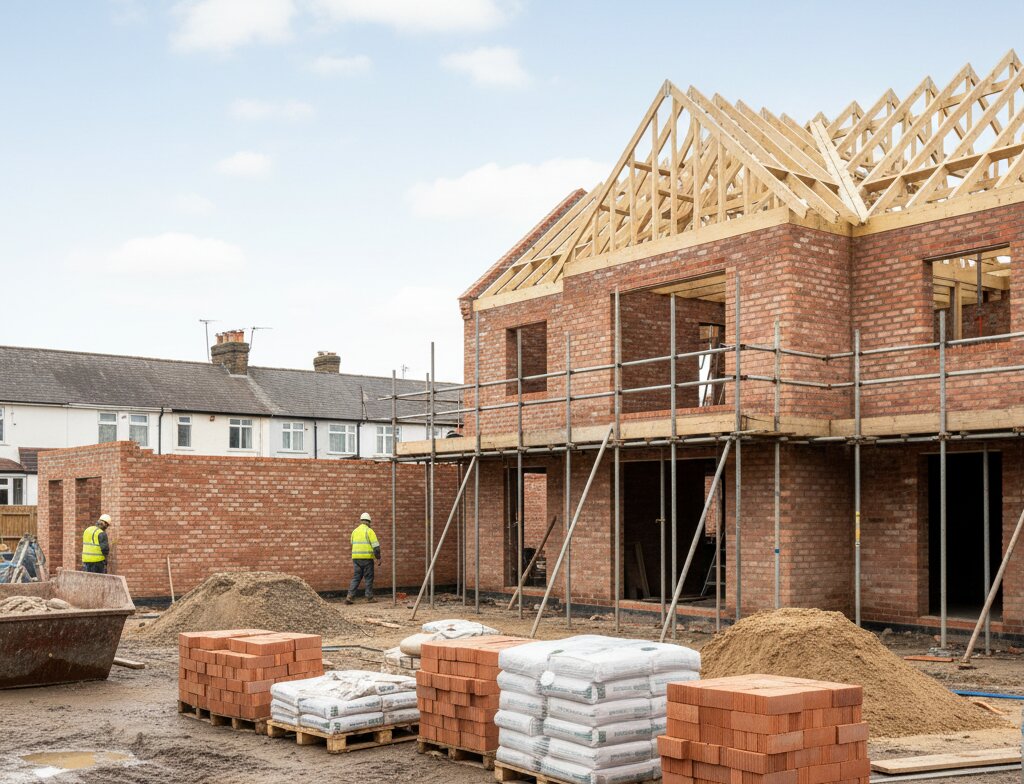The government has announced a wide-ranging package of planning reforms designed to accelerate housing delivery, boost clean energy projects and cut through what ministers describe as “bureaucratic blockers” holding back economic growth.
The measures, unveiled ahead of the second reading of the landmark Planning and Infrastructure Bill, are intended to slash delays, speed up infrastructure approvals, and help deliver 1.5 million homes over the course of this Parliament.
The reforms also aim to unlock long-stalled projects in sectors ranging from housing to water and renewable energy, while making the planning process more flexible and less susceptible to local obstruction.
Under the proposals, ministers would gain new powers to intervene directly in local planning decisions, including the ability to prevent councils from rejecting major applications while Whitehall considers whether to “call in” a decision. Government figures show that nearly 900 major housing schemes have been blocked by local authorities over the past year alone.
FASTER APPROVAL
The new powers will also allow faster approval of critical infrastructure such as reservoirs – none of which have been built in the UK for more than 30 years – by classifying them as nationally significant projects.
In addition, reforms to planning permissions will prevent approved housing schemes from expiring while tied up in lengthy judicial reviews, removing what ministers describe as “a costly and unnecessary barrier” to progress.
The government said it would further streamline Natural England’s role by allowing it to focus resources on complex or environmentally sensitive cases, while providing standardised guidance to councils on lower-risk applications.
The aim, it said, is to free up capacity to prioritise large-scale infrastructure and housing delivery.
ECONOMIC GROWTH
Officials believe that together, these changes could help drive an additional £7.5 billion of economic growth over the next decade.
The government has already signed off on several major projects this year, including Gatwick Airport’s expansion and the Lower Thames Crossing, and expects to make 150 planning decisions on national infrastructure projects over the life of the current Parliament.

Housing Secretary Steve Reed says the reforms are aimed at “ending the barriers to building at every turn” and ensuring that economic growth and environmental protection could go hand in hand.
The Chancellor, Rachel Reeves, says: “The outdated planning system has been gummed up by burdensome bureaucracy and held to ransom by blockers for too long.
“Our pro-growth planning bill shows we are serious about cutting red tape to get Britain building again, backing the builders not the blockers to speed up projects and show investors that we are a country that gets spades in the ground and our economy growing.”
ELEPHANT IN THE ROOM

Anna Moore, co-founder and CEO of retrofit specialist Domna, says: “The government’s announcement to further streamline planning rules is welcome but ignores the elephant in the room of housing delivery – namely that it is far easier and cheaper to fix already existing homes than it is to build new ones.
“It is striking that ministers have proposed to make compulsory purchase easier for new development land, but not for existing empty homes.
“While building new homes will deliver supply in several years’ time, restoring the 350,000 long-term vacant homes will increase supply far more quickly and without the associated cost or environmental impact of new construction.
“Meanwhile, the proposal to unlock sites for critical energy infrastructure, and by extension secure 3GW of onshore wind, is welcome in the context of the climate emergency.”
COST OF LIVING
And she adds: “But while we wait for these long-term investments to come online, it is crucial to those struggling with the cost of living that the government invests in measures that make homes cheaper and more efficient to heat now.

“From dual-use heat pumps to wall cavity insulation, improving the energy efficiency of the UK’s homes will offer immediate financial relief for huge numbers of families at little cost to the state.”
The reforms come as ministers prepare for the Planning and Infrastructure Bill to become law later this year – a cornerstone of the government’s broader economic strategy.
Alongside ambitious targets to deliver new housing and renewable energy capacity, the package is being pitched as a statement of intent to investors that Britain is “back open for business.”










